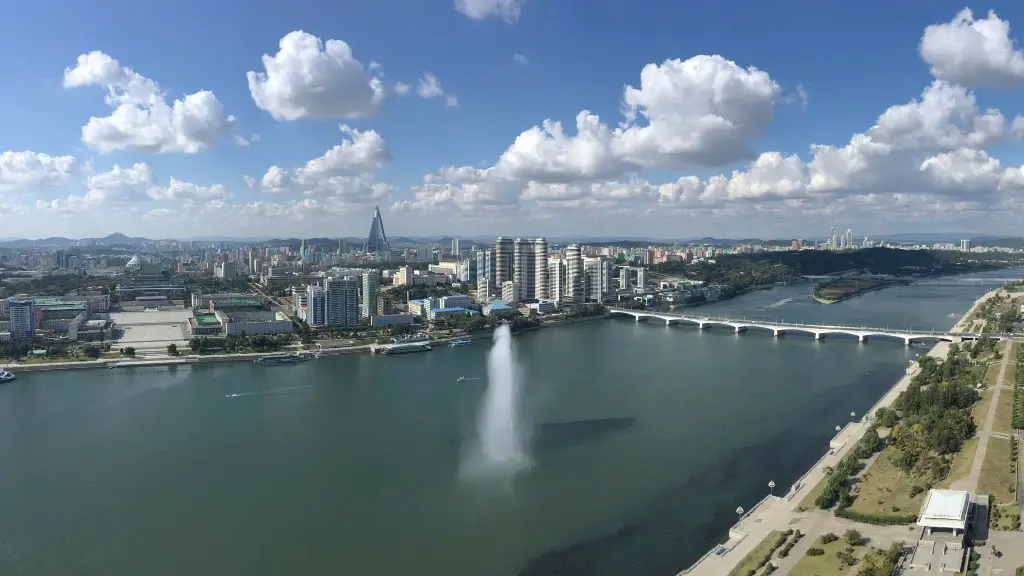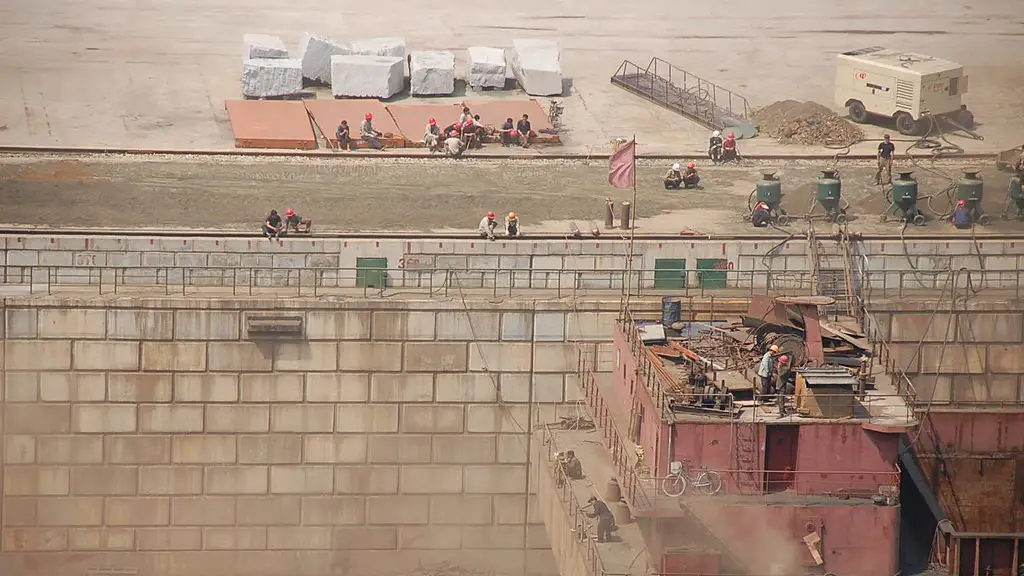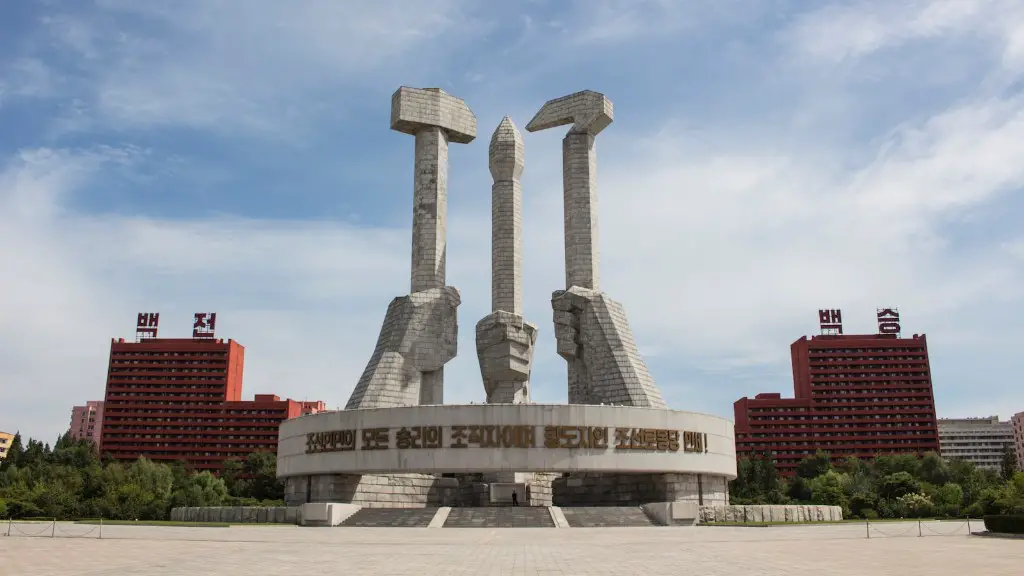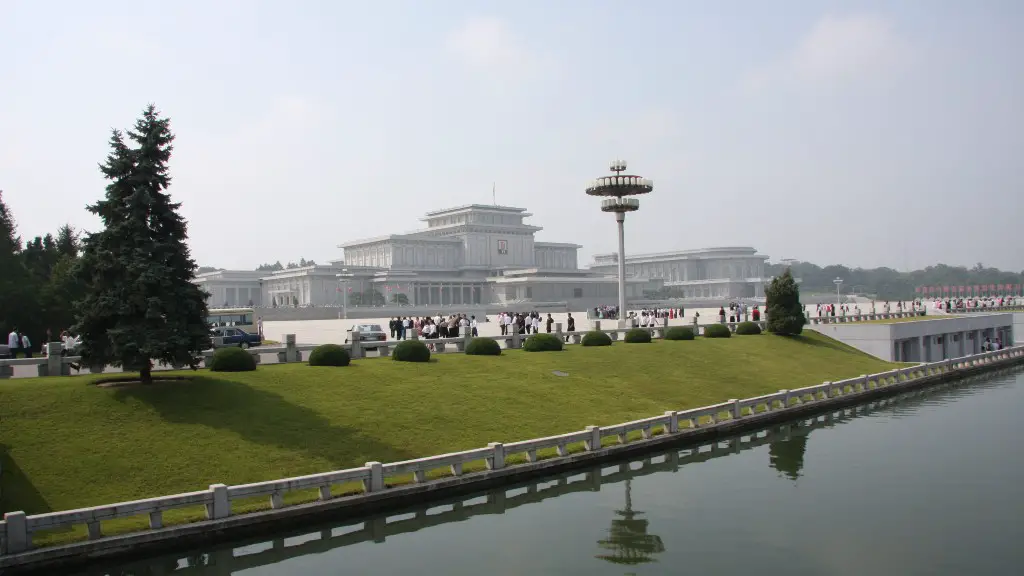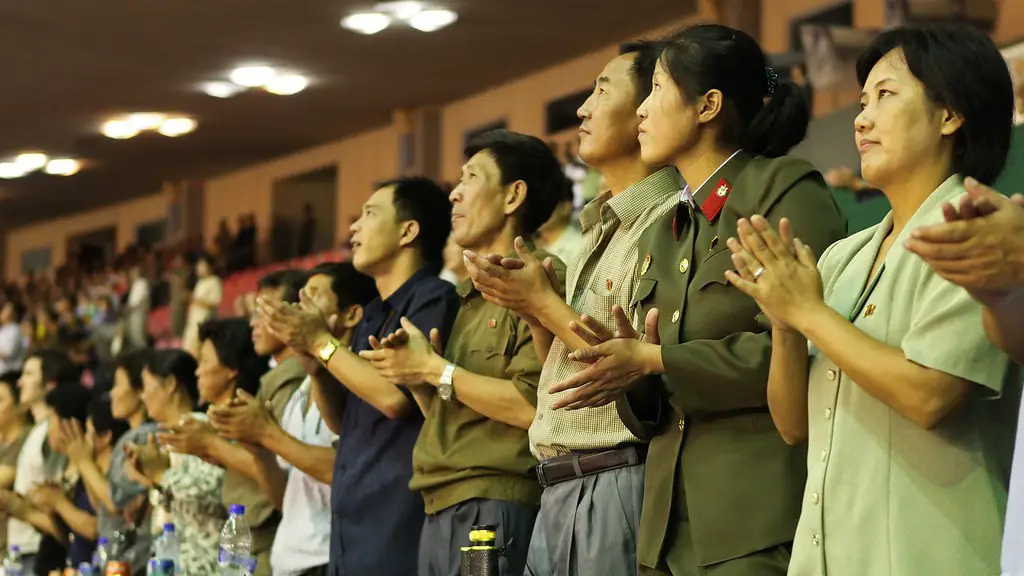North Korea became a dictatorship in 1948 after the formation of the Democratic People’s Republic of Korea. The country has been ruled by the Kim family since then, led by Kim Il-Sung, and has been characterized by oppressive rule, economic hardship, and a severe lack of freedoms. Despite its totalitarian government, North Korea maintains a formidable nuclear weapons program and continues to be a threat to the regional stability. In this article, we will explore the various factors that contributed to North Korea’s transformation into a dictatorship and the challenges it poses to the international community.
Historical Factors
North Korea’s transformation into a dictatorship began in 1948 with the establishment of the Democratic People’s Republic of Korea by Kim Il-Sung. Kim Il-Sung had been an influential leader of the Korean nationalist movement prior to the division of the Korean peninsula and his victory in the ensuing civil war. The Korean peninsula had been divided by two rival factions, and they were supported by the two superpowers of the time, the Soviet Union and the United States. Following the collapse of the Japanese Empire, the peninsula was left temporarily divided and vulnerable to further foreign interference.
Kim Il-Sung was able to build a personality cult and secure his power base over North Korea by utilizing political repression and propaganda to strengthen his hold over the population. He implemented a totalitarian regime that would remain in power until his death in 1994 when his son, Kim Jong-Il, took over.
The North Korean government prevented the population from contact with the outside world and heavily censored information about their nation and its regime. State-run media was instrumental in reinforcing the Kim regime’s grasp on power and the loyalty of the population. Thus, through a combination of stringent measures, the regime was able to secure its hold over the population, stifle dissent and prevent further interference from outside forces.
Economic Decline and Isolation
The economic decline experienced by North Korea during the early years of Kim Il-Sung’s rule further enabled the formation of a dictatorship. The country’s external trade with other nations was heavily restricted following its declaration of independence, leading to severe economic difficulties. This was coupled with the economic breakdown of the Soviet Union, North Korea’s primary source of external economic support, further exacerbating the North Korean government’s precarious economic situation.
The economic difficulties caused by the lack of external trade and support for the North Korean economy, combined with the stringent measures taken by Kim Il-Sung to maintain his power, led to a sharp decline in the country’s standards of living. Food shortages, medical deprivation and extreme poverty created fertile grounds for further oppressive rule by the regime.
The North Korean government’s policy of isolation from the outside world allowed it to evade criticism and scrutiny from the international community. This enabled the regime to maintain its stranglehold over the population and further limited any outside interference or criticism. As a result, the dictatorship is still in place today, despite attempted economic reforms by the Kim regime.
Regional Impact and Nuclear Weapons Program
North Korea’s nuclear weapons program has served as an effective deterrent for potential aggressors, as well as a means of securing its status as a global military power. The development of the country’s nuclear arsenal has further solidified the Kim regime’s grip on power by allowing it to react to perceived threats from neighboring South Korea and the United States. North Korea’s nuclear program has also provided a source of diplomatic bargaining with the United States and other countries, further boosting the regime’s ability to stay in power.
North Korea’s nuclear program has had a negative impact on regional security, as the Kim regime has frequently used the weapons as a means of intimidation and coercion against its adversaries. The country has conducted multiple missile tests, and its possession of nuclear weapons has escalated regional tensions. In spite of this, North Korea has yet to use its nuclear weapons, and thus the possibility of a regional conflict remains limited.
Challenges to the International Community
The continued existence of North Korea as a dictatorship presents a unique challenge to the international community. The country’s isolation from the rest of the world, combined with the Kim regime’s belligerence and nuclear program, has made it a potential threat to global peace and stability. Thus, in order to effectively address the issues posed by North Korea, the international community must continue to pursue diplomatic engagement with the country and strive for a peaceful and secure resolution of the crisis.
The United Nations has sought to implement sanctions on the North Korean regime in response to its disregard for human rights and continued efforts to develop its nuclear arsenal. These sanctions have had little effect, as the country remains largely isolated and heavily reliant on external sources of aid. The United States has also implemented an economic embargo on North Korea in an effort to pressure the country into compliance and denuclearization.
The international community must continue to work towards a peaceful resolution of the ongoing crisis, while simultaneously advocating for the rights and freedoms that have long been denied to the people of North Korea. The continued oppression of the North Korean people and consistent disregard for international law by the Kim regime is a source of concern for the global community, and concerted efforts by all relevant parties must be taken in order to resolve the situation.
Social Media and North Korean People
In recent years, North Korean citizens have been turning to social media to share information and voice their frustrations and dissatisfaction with the regime. Citizens have also been using social media as a tool to reach out to the international community and spread awareness of the human rights issues and unfair policies that the North Korean population must endure. By using social media and other digital communication tools in this way, North Koreans have been able to open up a space in which they can express their individual freedoms and communicate with the outside world.
The use of social media has also enabled North Koreans to access outside information and gain a better understanding of the realities of life beyond their borders. This has exposed them to the standards and freedoms enjoyed by citizens in other countries, and has offered them a glimpse of how life could be if they were to gain their own freedom. Despite the stringent restrictions imposed by the regime, the use of social media has offered some glimmer of hope to the North Korean population that a better life is possible.
Additionally, it has also allowed for the spread of pro-democracy, pro-human rights, and pro-unification messages. These messages have served to give courage to the North Korean people who, in spite of the risks, are willing to stand up for their rights and speak out against the regime’s oppressive policies. Social media has thus provided a platform for freedom of expression and has opened up channels of communication for the beleaguered North Korean population.
Sanction and International Cooperation
The international community has taken concerted efforts to put pressure on the Kim regime and dissuade them from pursuing their nuclear weapons program and oppressive policies. The United Nations has imposed economic sanctions aimed at cutting off certain key sources of revenue for the North Korean government. Additionally, individual countries such as the United States have pursued an economic embargo against the North Korean regime.
Despite the implementation of these measures, the Kim regime has continued to pursue its nuclear weapons program and show little regard for international law. The international community has thus been unable to effectively bring about lasting change in North Korea through traditional diplomatic channels.
The increasing interconnectedness of the global economy has created an opening for international cooperation aimed at bringing North Korea back into the fold. Countries such as South Korea, China, Japan, and Russia have been taking a more proactive stance in trying to engage North Korea diplomatically. These countries have been advocating for a more peaceful resolution to the crisis and have sought to establish channels of communication between the international community and the North Korean government.
The international community has also been taking steps to help facilitate a peaceful transition in North Korea. Countries such as South Korea, the United States, and Japan have been providing aid and assistance to the North Korean population in order to address the humanitarian crisis that has been created by the oppressive policies of the Kim regime. They have also been pushing for increased economic and political openness within North Korea in order to create a path for the eventual unification of the Korean peninsula.
Political Transition and Human Rights
The international community has continued to call for a peaceful political transition in North Korea, which would allow for the dismantling of the oppressive regime and the creation of a new government that respects the human rights of its citizens. North Korean citizens have been vocal in pushing for a more democratic and open form of government, and have sought to increase awareness of the issues that they are facing. Additionally, a number of high-profile defections in recent years have further helped to bring the issue of human rights in North Korea to the forefront of international attention.
Despite these efforts, it is uncertain whether the international community will be able to encourage or facilitate a peaceful political transition in North Korea. The Kim regime has proven to be adept at evading international scrutiny and has thus far been successful in maintaining its oppressive hold over the population. It is also unclear how the process of transitioning to a more open and democratic form of government will unfold.
The international community must continue to pursue a peaceful resolution to the North Korean crisis. This should include continued diplomatic efforts and economic aid for the North Korean people, and a strong stance against North Korean human rights abuses. Additionally, increased channels of communication are needed, in order to facilitate a more comprehensive understanding on the part of the international community.
International Support and Need for Change
North Korea’s transformation into a dictatorship has had far-reaching implications for the international community. The country has been a source of regional insecurity and a potential threat to global peace and stability. As a result, it is essential that the international community continue to pursue diplomatic engagement with the country and strive for a peaceful and secure resolution of the crisis.
The need for a peaceful resolution is further underscored by the ongoing human rights abuses and oppressive policies of the Kim regime. The North Korean population continues to suffer under the repressive rule of the Kim regime, and it is essential that the international community take action to bring about a peaceful political transition. The international community must continue to advocate for the rights and freedoms of the North Korean people, while working towards a solution to the crisis that respects the autonomy and self-determination of the North Korean population.
The situation in North Korea is a complex and challenging one, and it is clear that it will require concerted efforts and cooperation from the international community in order to bring about a peaceful resolution. Nonetheless, it is possible that, with continued international support, there could be meaningful progress in terms of human rights and the eventual democratization of North Korea.
